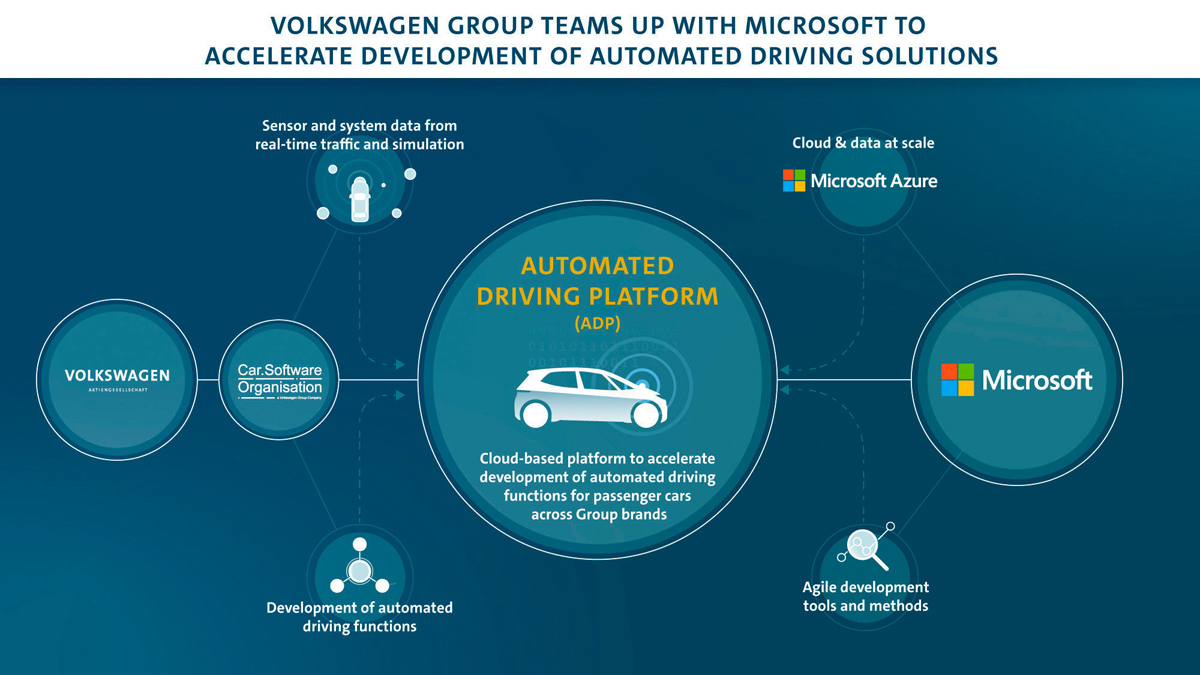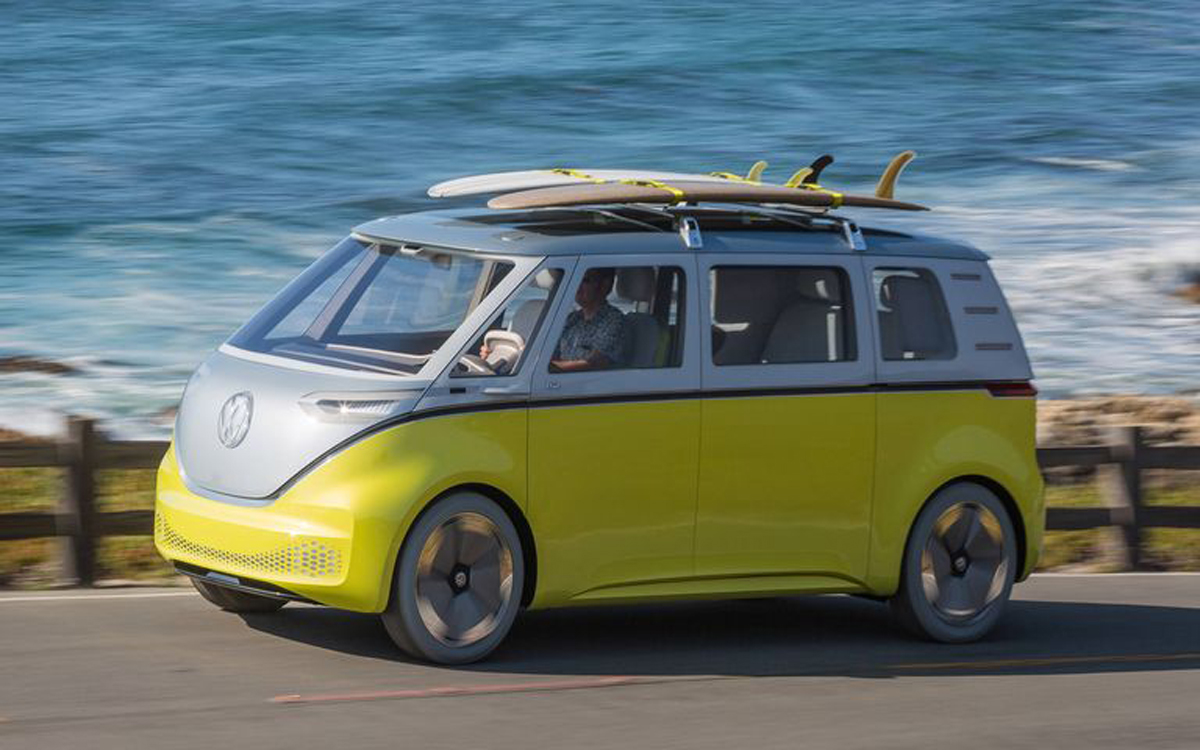VW and Microsoft have collaborated on digital services and mobility offerings since 2018, whereas this new deal will see them co-develop VW’s Automated Driving Platform (ADP) for self-driving functions. This process requires managing huge amounts of data, so Microsoft’s expertise in computation, AI and data capabilities will greatly ease and reduce Volkswagen’s development cycles from months to weeks. “As we look to transform Volkswagen Group into a digital mobility provider, we are looking to continuously increase the efficiency of our software development,” said Car.Software CEO Dirk Hilgenberg. “By combining our comprehensive expertise in the development of connected driving solutions with Microsoft’s cloud and software engineering know-how, we will accelerate the delivery of safe and comfortable mobility services.” The automaker aims to have all of its future ID car models to feature Level 4 autonomous functions. For those unfamiliar, Level 4 is considered to be fully autonomous driving, but would still feature a cockpit in order to allow a human driver to manually take control. The first Volkswagen car to be equipped with this technology, according to VW’s CEO of Autonomy Alex Hitzinger (via WardsAuto), is a commercial version of its ID Buzz minivan concept, which is slated to be released in 2025. This is in line with VW Group’s CEO Herbert Diess’ vision, who is expecting autonomous vehicles to be ready for sale between 2025 and 2030, as reported by Reuters in December. On a related note, Microsoft also teamed up with automaker GM and subsidiary Cruise in late January to help boost the commercialisation of autonomous vehicles (AV). Other known established partnerships as part of the software giant’s push into the transportation sector include UK-based autonomous vehicle startup Wayve and Japanese car company Toyota. (Source: Volkswagen [Official website])

